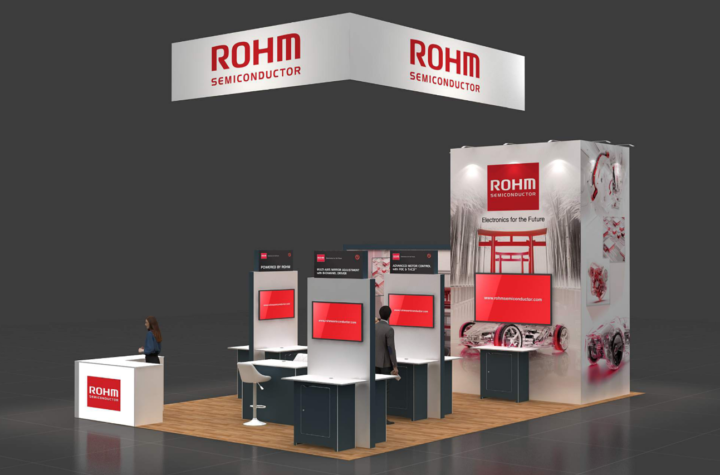
The U.S. Department of Energy’s (DOE) Argonne National Laboratory and LG Chem, Ltd., announced today that they have reached a licensing agreement to make and use Argonne’s patented cathode material technology in lithium-ion battery cells.
The technology is in the battery cell that is powering General Motors Company’s Chevrolet Volt, the first mass-produced plug-in hybrid electric vehicle. The Volt has an EPA estimated range of 35 miles on a full charge.
The Argonne-developed technology offers the longest-lasting energy available in the smallest, lightest package: a 50–100 percent increase in energy storage capacity over conventional cathode material. Further, its unique lithium- and manganese-rich mixed-metal oxide combination extends the operating time between charges, increases the calendar life and improves the inherent safety of lithium-ion cells.
“We believe that Argonne’s patented cathode material technology that helps increase the capacity of lithium-ion battery cells and LG Chem’s safety-enhanced SRS® (separator) technology are the keys to producing high-performance and safe batteries for the GM Volt,” said Youngjoon Shin, Ph.D., Research Fellow, Battery R&D, LG Chem.
“The licensing agreement with LG Chem concretely illustrates the key role that DOE national laboratories like Argonne play in the manufacturing supply chain in the United States,” said Eric Isaacs, Argonne director and president of UChicago Argonne, LLC, a wholly owned laboratory management subsidiary of the University of Chicago. “The development of this cathode material is the result of research performed by a multidisciplinary team of world-class scientists based at Argonne.”
“It is especially gratifying to know that the commercialization of this Argonne-cathode is helping the development of an emerging U.S. battery manufacturing industry, as well as the creation of new American jobs,” said Jeff Chamberlain, who heads Argonne’s Energy Storage Initiative.
LG Chem Michigan, Inc. (LGCMI), a wholly owned subsidiary of LG Chem, will manufacture Li-ion polymer battery cells for the Chevy Volt at a Recovery Act-funded $303 million production facility under construction in Holland, Mich. The plant will employ more than 400 people.
“Department of Energy innovations are playing a critical role in advancing America’s electric vehicle industry,” said U.S. Energy Secretary Steven Chu. “The commercialization of this cutting-edge battery technology once again highlights the importance of our national laboratories in advancing our clean energy goals and supporting U.S. manufacturing.”
Argonne has developed and patented a sizable suite of Li-ion battery technologies with funding from DOE’s Office of Energy Efficiency and Renewable Energy. Funding for the earlier stages of research and development of this technology was provided by DOE’s Office of Science.
“Talented scientists at Argonne have long been a source for industry-leading innovations in the area of automotive research,” said Rep. Judy Biggert, (R-Ill.), a senior member of the House Science, Space, and Technology Committee and long-time champion of federal research efforts. “With support for basic science research from the DOE’s Office of Science and Congress, the work going on right here in our community promises to transform our transportation industry and keep the U.S. economically competitive for years to come. This agreement will help speed those innovations out of the laboratory and into the marketplace, where they can create jobs, benefit consumers and help reduce our dependence on foreign energy.”
“This licensing agreement underscores the importance of scientific research conducted at the DOE’s national laboratories, research that makes possible discoveries that benefit the American economy,” said University of Chicago President Robert Zimmer.
About LG Chem
LG Chem, Ltd. is Korea’s largest chemical and rechargeable battery maker in terms of both size and performance. The company’s chemical business is vertically integrated and manufactures a wide range of products, from petrochemical goods to high-value added plastics. It also extends its chemical expertise into high-tech areas such as rechargeable batteries and the display materials field. For more information, please visit our website at www.lgchem.com.
About LG Chem Michigan Inc.
LG Chem Michigan, Inc. (LGCMI) is a wholly-owned North American subsidiary of LG Chem. The company was established in 2010 to manufacture Lithium-ion battery cells at the $303 million production facility in Holland, Mich., that was funded in part by a grant from the U.S. Department of Energy.
About Argonne
Argonne National Laboratory seeks solutions to pressing national problems in science and technology. The nation’s first national laboratory, Argonne conducts leading-edge basic and applied scientific research in virtually every scientific discipline. Argonne researchers work closely with researchers from hundreds of companies, universities, and federal, state and municipal agencies to help them solve their specific problems, advance America’s scientific leadership and prepare the nation for a better future. With employees from more than 60 nations, Argonne is managed by UChicago Argonne, LLCfor the U.S. Department of Energy’s Office of Science.
Additional information
For additional information on Argonne’s Energy Storage Program go to: https://blogs.anl.gov/major_initiatives/energy-storage/
For information on the U.S. Department of Energy’s Vehicle Technologies Program go to: http://www1.eere.energy.gov/vehiclesandfuels/





More Stories
Bangkok International Motor Show 2025 – The Talk of Sensuous Automotive
Earn GHG reduction values through MOL Pure Car Carrier “Book and Claim (B&C)” service
Dry silicon composite by Blue Current is the next generation of battery technology